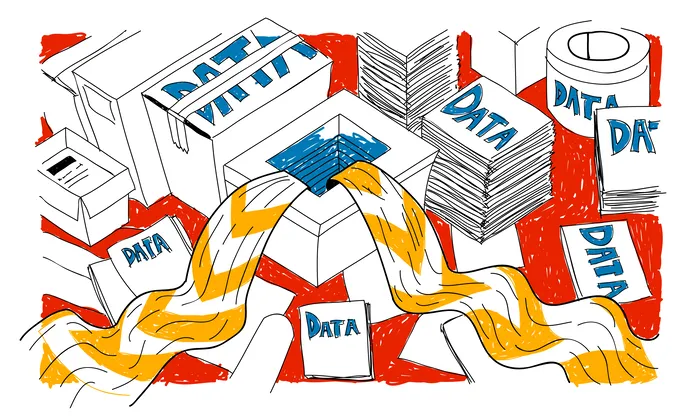How do models trained on medical dialogue differ from general chatbots?
NLP
Healthcare
Chatbots
Understanding the differences between models trained on medical dialogue and general chatbots is crucial for AI engineers and product managers in healthcare. While both utilize natural language processing (NLP) and machine learning, their design and application vary significantly, which directly impacts patient outcomes and user engagement.
Distinct Nature of Training Data
- Medical Dialogue Models: Medical dialogue models are designed specifically to understand healthcare-related conversations. They are trained on authentic dialogues between healthcare professionals and patients, including consultations, diagnoses, and follow-up interactions. The data reflects real-world clinical scenarios, which is essential for ensuring that healthcare AI models can accurately interpret complex medical information. These models are developed to handle medical jargon, sensitive topics, and nuanced conversations—key aspects of providing quality healthcare.
- General Chatbots: In contrast, general chatbots are trained on a broad range of conversational datasets that cover various topics, including customer service, social media exchanges, and casual conversations. While this provides a versatile ability to engage in many types of discussions, general chatbots lack the deep, domain-specific knowledge required to handle intricate medical queries. They are effective in general tasks but fall short when dealing with specialized healthcare conversations.
Importance of Contextual Understanding
- Clinical Context: Medical dialogue models need to interpret complex medical terms, understand symptoms, and provide relevant responses in the context of a specific diagnosis or treatment. They are trained in various medical specialties and undergo validation by healthcare professionals to ensure accuracy. This deep contextual understanding is critical for offering reliable medical advice and for addressing sensitive patient concerns appropriately.
- General Context: General chatbots, by design, focus on broader conversational elements like basic social exchanges or task-based queries. While they excel in processing simple, non-specialized tasks—such as taking pizza orders or answering FAQs—they may struggle with specialized healthcare questions, such as inquiries about medication side effects or treatment options for rare conditions.
Conversational Dynamics
- Doctor-Patient Interactions: Medical dialogue models place significant emphasis on recognizing emotional cues, managing sensitive topics, and demonstrating empathy. These aspects are critical in healthcare environments where patient trust and emotional comfort are essential. These models simulate real-world doctor-patient conversations, capturing emotional responses, interruptions, and nuanced interactions, which ultimately enhances patient engagement and satisfaction. For healthcare projects that require realistic dialogues, FutureBeeAI offers specialized doctor-patient conversation datasets.
- General Interaction Patterns: While general chatbots can maintain a conversation and address a variety of topics, they often lack the capacity to recognize and respond appropriately to emotional cues. Their responses tend to be more mechanical and functional, which can detract from the overall user experience, especially in healthcare environments where empathy and understanding are paramount.
Ethical and Compliance Considerations
- Ethical Data Collection: Medical dialogue models are developed under stringent ethical guidelines, ensuring compliance with patient privacy laws such as HIPAA and GDPR. Simulated conversations, instead of real patient data, are often used to reduce privacy risks while still providing the necessary context for model training. Ethical practices in data collection are vital to maintaining trust and security in healthcare AI applications.
- General Data Compliance: General chatbots may not always adhere to the same privacy regulations, particularly if they rely on publicly available or user-generated data. This can expose sensitive information and highlight the need for robust ethical guidelines when developing AI systems, especially those intended for healthcare use.
Specialization vs. Generalization: Key Decision Factors
- Choosing the Right Model: The decision to use a medical dialogue model or a general chatbot depends on the application. Medical dialogue models require focused, domain-specific speech data collection and rigorous validation but offer specialized capabilities for handling healthcare interactions. General chatbots, while more flexible and less resource-intensive, often lack the precision required in medical contexts.
- Resource Allocation: Developing medical dialogue models involves a significant investment in terms of time, resources, and expertise in both data curation and compliance. However, this investment is justified by the potential for improving patient outcomes and providing a more engaging and empathetic user experience in healthcare applications.
Common Pitfalls in Developing Medical Dialogue Models
- Underestimating Domain Expertise: A frequent mistake is underestimating the importance of involving healthcare professionals in the development process. Their input is essential for ensuring that the dialogue models are accurate, relevant, and medically sound.
- Overlooking Realistic Interaction Patterns: Another common pitfall is simplifying interactions too much. Real doctor-patient dialogues are complex and contain emotional cues, pauses, and interruptions. Oversimplifying these dialogues can strip away the essential nuances, reducing the effectiveness of the model.
Building Effective Healthcare AI Solutions
In conclusion, while both medical dialogue models and general chatbots rely on NLP and machine learning, they differ significantly in their training data, contextual understanding, conversational dynamics, and ethical considerations. Recognizing these differences allows AI engineers and product managers to make informed decisions when developing healthcare AI solutions that aim to improve patient outcomes, communication, and overall engagement.
For healthcare projects requiring domain-specific dialogue data, FutureBeeAI offers expert-led simulated datasets that ensure medical realism while maintaining the highest ethical standards. Explore how our tailored solutions can elevate your AI initiatives.
What Else Do People Ask?
Related AI Articles
Browse Matching Datasets
Acquiring high-quality AI datasets has never been easier!!!
Get in touch with our AI data expert now!








